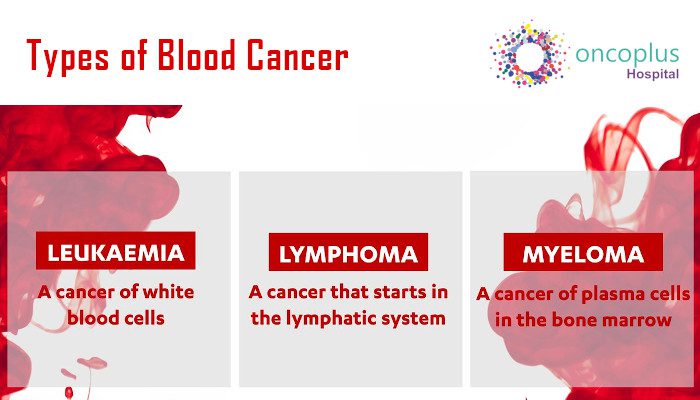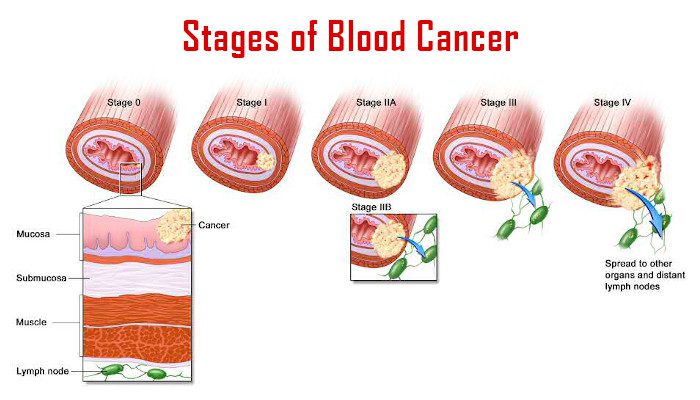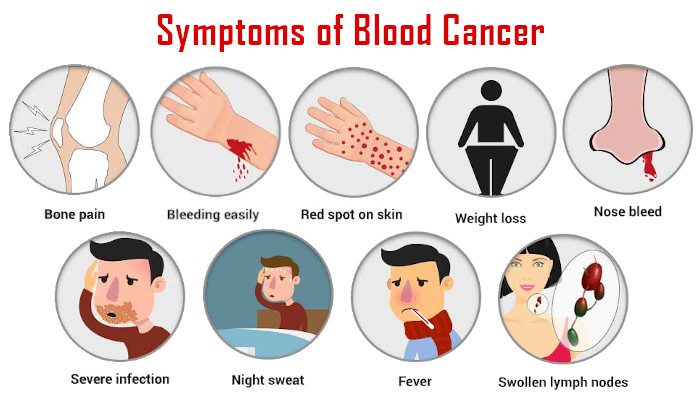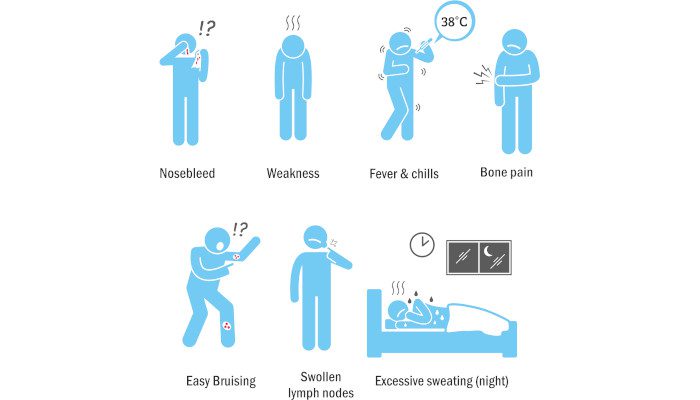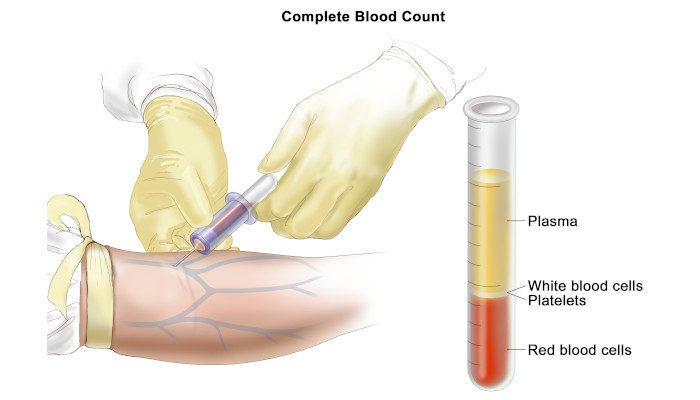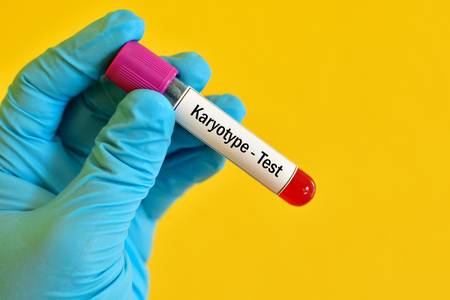Blood cancer occurs when there is an overproduction of abnormal functioning cells in the body. The mass production of abnormal cells suppresses the bone marrow in the production of healthy cells such as platelets, red blood cells, and white blood cells.
Types
- Leukemia: one of the blood cancer types, wherein there is an overproduction of white blood cells (WBC) that are not functioning properly, thus cannot fight infections.
- Acute Lymphoblastic Leukemia (ALL): rapidly produces immature and abnormal lymphocytes (lymphoblasts), which cannot fight off infection. It produces massively that they crowd out healthy white blood cells, making a person a higher risk for infections.
- Acute Myeloid Leukemia (AML): a type of leukemia wherein there is an uncontrolled production of immature myeloid cells- myeloblasts. Myeloblasts do not mature into healthy functioning WBC, decreasing the body’s defenses against infections. As leukemia cells fill the bone marrow, the red blood cell and platelet production are hindered.
- Chronic Lymphocytic Leukemia (CLL): the same with ALL that it starts to develop in lymphocytes but grows slowly, and blood cancer symptoms manifest after few years; the most common type of cancer in the blood in adults.
- Chronic Myeloid Leukemia (CML): the same with AML, which begins to develops from myeloid cells but develops slowly; more common in men
- Lymphoma: is another blood cancer type that starts with lymphocytes, and abnormal lymphocytes turn to lymphoma cells that reproduce and accumulate in the lymph nodes, spleen, thymus, bone marrow, and other parts of the body. Then it impairs the body’s immunes system.
- Hodgkin’s Lymphoma: starts in immune cells- B cells
- Non-Hodgkin’s Lymphoma: starts in B cells or T cells; the most common type of lymphoma
- Myeloma or Multiple Myeloma: one of the blood cancer types that develop from plasma cells, which are a type of WBC that produces antibodies. This spreads to the bone marrow, damages the bones, and healthy cells are outnumbered.
Stages
How many stages of it? There are four stages of blood cancer, which are the following:
- Stage I: enlargement of lymph nodes
- Stage II: enlargement in one of these organs: spleen, liver, and lymph nodes.
- Stage III: anemia develops with the enlargement of 2 or more of these organs: spleen, liver, and lymph nodes.
- Stage IV: platelet levels drop swiftly, cancer cells affect the lungs along with the organs affected from the previous stages, presence of acute anemia
Symptoms
- Skin rash
- Petechiae: tiny, circular, flat patches as a result of bleeding beneath the skin
- Painless swollen of lymph nodes in the neck, underarms, or groin
- Headaches
- Shortness of breath
- Coughing or chest pain
- Recurrent infections: low WBC count
- Night sweats
- Joint pain
- Abdominal pain
- Unexplained weight loss
- Fever and chills
- Persistent body weakness
- Loss of appetite or nausea
- Easily bruising: low platelet count
Causes
Why blood cancer occurs? There is no definite reason yet what are blood cancer causes, but scientists believed that it is formed due to genetic and environmental factors.
Here are some risk factors that make a person is a higher risk of developing cancer in the blood:
- Family history of cancer in the blood
- Previous chemotherapy and radiation treatment are at high risks of developing cancer in the blood
- Genetic disorders such as Down syndrome, Fanconi anemia, and Bloom syndrome
- Exposure to chemicals such as benzene that is used in chemical facilities, rubber industries, shoe manufacturing, and gasoline industries
- Radiation exposure
- Smoking
Book an appointment with Oncology experts at Oncoplus Cancer care.
Diagnosis
Several tests are performed for it diagnosis, which are:
- Physical Exam: the physician assesses for blood cancer signs such as pale skin, swollen lymph nodes, enlargement of the liver and spleen.
- Blood tests
- Complete blood count (CBC): checks the levels of red blood cells, white blood cells, and platelets
- Virology testing: to determine if a person has been infected with HIV, Hepatitis B, and C so appropriate treatment will be given alongside cancer treatment
- Liver function tests: to monitor the status of the liver when undergoing chemotherapy
- Peripheral blood Smear: to check the size and shape of the red blood cells, white blood cells, and platelets
- Urea and electrolytes: to check the functioning of the kidneys, if it has been invaded by cancer or any damaged by blood cancer treatment
- Bone Marrow Biopsy: small bone marrow is taken out to check for any abnormal cells
- Aspirate: liquid bone marrow is taken for biopsy
- Trephine: spongy bone marrow and some bone is taken out for biopsy
- Lymph Node Biopsy: a minor surgical procedure is performed to take a sample of the lymph node with cancer to determine the type of cancer
Book an appointment with the best kidney cancer doctors in Delhi for Kidney Cancer Treatment
Treatment
Can it be treated? There are various blood cancer treatments that are used depending on the type of cancer in the blood and its severity.
- Stem Cell Transplantation: a method wherein cancer cells in the bone marrow are replaced with healthy cells
- Chemotherapy: a treatment for blood cancer that uses cytotoxic drugs to stop cancer cell production
- Radiation Therapy: another treatment for cancer in the blood that uses high-energy beams
- Biological Therapy: a blood cancer treatment that boosts the immune system of an individual to attack cancer cells
- Targeted therapy: a treatment that attacks the specific weakness of cancer cells
Book an appointment with the Best Cancer Specialist at Oncoplus Hospital.
Symptoms, Diagnosis, and Treatments of Blood Cancer
Blood cancer is very dangerous for our health, we need to find out its symptoms on time and start the treatments as soon as possible if we find symptoms in our health routine we should contact the doctor and inform that what happens. after consulting the doctor and get positive we should not delay we should start treatments of blood cancer.
WHAT IS BLOOD CANCER?
Blood cancer is the type of cancer that originates from the bone marrow as bone marrow is the integral source of blood production. blood cancer affects the production and function of a patient’s blood cell.
There are two type BLOOD CANCER:
- LEUKAEMIA :
Leukemia is the cancer of the white blood cells caused by the rapid production of abnormal white blood cells because of which they cannot fight infections rightly. Leukemia can occur in both adults as well as children. - MYELOMA :
Myeloma is the cancer of plasma cells, which are a type of white blood cell also known as our body’s defense mechanism. In this type of cancer, the body’s ability to fight infections is inhibited leading to frequent illness. Myeloma can develop in any location where there is blood plasma.
SIGNS AND SYMPTOMS
Since the symptoms of Blood Cancer can be confused by flu or other common illnesses so these may often be ignored or overlooked. The symptoms differ from patient to patient as these depend on certain factors including the type of blood cancer, the stage of cancer, the progression (acute or chronic).
A few common signs of blood cancer may include the following:
- Anemia
- Fever or infections
- Swelling of Lymph nodes
- Unexplained weight loss
- Pain in the bone
- Swelling of liver or spleen
- Night sweats
RISK FACTOR AND CAUSES OF BLOOD CANCER
There are no exact known causes for developing cancer, but studies prove that some factors may increase the chances a person can have cancer in his/her life. Risk factors can be different for different types of cancer, but there are a few common risk factors for all types of cancer. A few are listed below:
Chemical exposure:
Exposure to chemicals like benzene, formaldehyde, heavy factory smoke and chemicals, etc. can also cause blood cancer.
Radiation exposure:
Exposure to radiation can also cause Blood cancer. The higher the dose of radiation, the more the risk of developing blood cancer.
Smoking:
Smoking is said to be one of the major risk factors for causing blood cancer because tobacco is likely to damage or change the DNA of blood cells that causes abnormal growth causing blood cancer. It can also reduce the body’s immunity, making the body more prone to illness.
Diet for treatment of blood cancer:
Today, more than 50% of the world’s population do not follow a nutritious diet, a few foods, however, increase the risk of cancer. They are as follows:
- Processed meat
- Microwave popcorn
- Aerated drinks
- Diet food and beverages
- Refined flour
- Refined sugars
- Dirty fruits and vegetables
- Farmed salmon
- Hydrogenated oils
Diagnostic Tests for Blood Cancer
The most common tests used to diagnose blood cancer available at Oncoplus Hospital are:
Complete blood count
This blood test measures the concentration of various types of blood cells-red blood cells, white blood cells, and platelet cell count, in the given sample. This test determines abnormalities in the blood cells or their concentration in blood. Bone marrow biopsy may help in confirming this diagnosis.
Bone marrow biopsy/aspiration
Removal of bone marrow sample for testing is called bone marrow biopsy or aspiration, the difference being the follows:
- Bone marrow aspiration: to extract a liquid bone marrow sample.
- Bone marrow biopsy: Removing a small amount of bone marrow tissue.
This test determines if the cancer is affecting the bone marrow, the type of blood cancer, and the stage of cancer. The main purpose of this test is to confirm blood cancer as well as bone marrow disorders if any also detect any DNA abnormalities in the sample.
Lymph Node Biopsy
Blood cancer affects the blood cells that successively means the immune system fully gets affected. The lymphatic system is responsible for human immunity. It includes tonsils, spleen, and lymph nodes. The lymph nodes are present in hundreds of the body, which contain white blood cells to fight infections.
In lymph node biopsy, a small cut is made and the node is taken, and the cut is closed by stitches. This test provides information about blood cancer, type, and stage.
Spinal tap
It is also referred to as lumbar puncture. A fine needle is inserted in the space between the bones in the lower back and cerebrospinal fluid is extracted from the spine. This fluid is examined under a microscope to assess the progress of blood cancer, whether it has spread to the spinal cord.
Flow cytometry
This check determines the blood and bone marrow cells to research an amendment within the white blood cell count that might cause cancer.
An instrument known as a flow cytometer is used to measure the number and percentage of cells and their characteristics.
Karyotype test
This check maps the forty-six human chromosomes of a cell to see the changes within the chromosomes and their arrangement.
The appearance of This checks for abnormalities within the size, shape, range, and arrangement of the blood cells or bone marrow cells.
Different Blood Cancer Stages and Metastasis
The stage indicates the extent of cancer progression. The stage of cancer helps the specialist to define the correct treatment option for blood cancer. Staging of blood cancer is classified based on blood cell counts and accumulation of these cells within other organs like the spleen, liver, etc. Stages are assessed after a proper evaluation of the patient.
Book an appointment with the Cancer Doctors in Delhi for Blood Cancer Treatment
Treatments of Blood cancer Options
The treatment of blood cancer depends on several factors including the type and stage of cancer, age of the patient, and the organs involved by cancer.
The most crucial treatment options available for blood cancer at Oncoplus are explained below:
1. Chemotherapy Treatment
Chemotherapy destroys the rapidly growing cells in the body using chemical drug therapy. It is one of the most reliable and effective treatments to cure blood cancer.
Book an appointment with an Oncologist at Oncoplus.
Chemotherapy Procedure: How it is done?
In Chemotherapy, chemical/drugs/medicines are injected into veins or the larger muscle, which then travel along the bloodstream to reach the cancer cells. These drugs stop the cancerous cells from spreading further in the body. Chemotherapy is conducted in stages allowing the patient to handle the side effects of treatment, however, these are generally short-termed and medication is prescribed after every session of therapy.
Side effects of Chemotherapy in blood cancer treatment:
Few organs including the Heart, Lier, Brain, Testicles, Ovaries, kidneys are affected due to chemotherapy. Other common side effects of chemotherapy include:
- Appetite changes
- Hair loss
- Nausea and vomiting
- Anemia
- Fatigue
- Constipation
The oncologist and team at Oncoplus takes care of the tolerance levels of the Patient before proceeding with the treatment.
2. Radiation Therapy for Blood Cancer Treatment
Radiation therapy damages the DNA in the cancerous cells using high-energy radiation, which further restricts their growth and reproduction.
Side effects of radiotherapy in treatment of blood cancer:
- Hair loss
- Nausea and Vomiting
- Skin problems
- Sore throat
- Heartburn
Since radiations are of high energy so it is advised to have a nutritious diet after radiotherapy also regular exercises contribute to the benefits of the patient’s health after radiotherapy.
3. Stem Cell Transplantation for Blood Cancer treatment
Since other treatment methods destroy the cancerous cells so patient’s body needs more new cells to maintain the normal functioning of the body. Stem cells are the cells of the bone marrow that develop further to produce new blood cells.
4. Blood Targeted Therapy for Blood Cancer treatment
This type of therapy targets the specific molecules that help cancer to grow and spread across the body. The main agenda of this therapy is to target the genes, proteins, and supporting blood vessels. This therapy is done alone or in combination with chemotherapy.
Side effects of Blood targeted therapy are :
- Increasing blood pressure
- Skin problems
- Gastrointestinal perforation
- Problems with blood clotting and wound healing
Book an appointment with the Best Cancer Specialist at Oncoplus Hospital.
